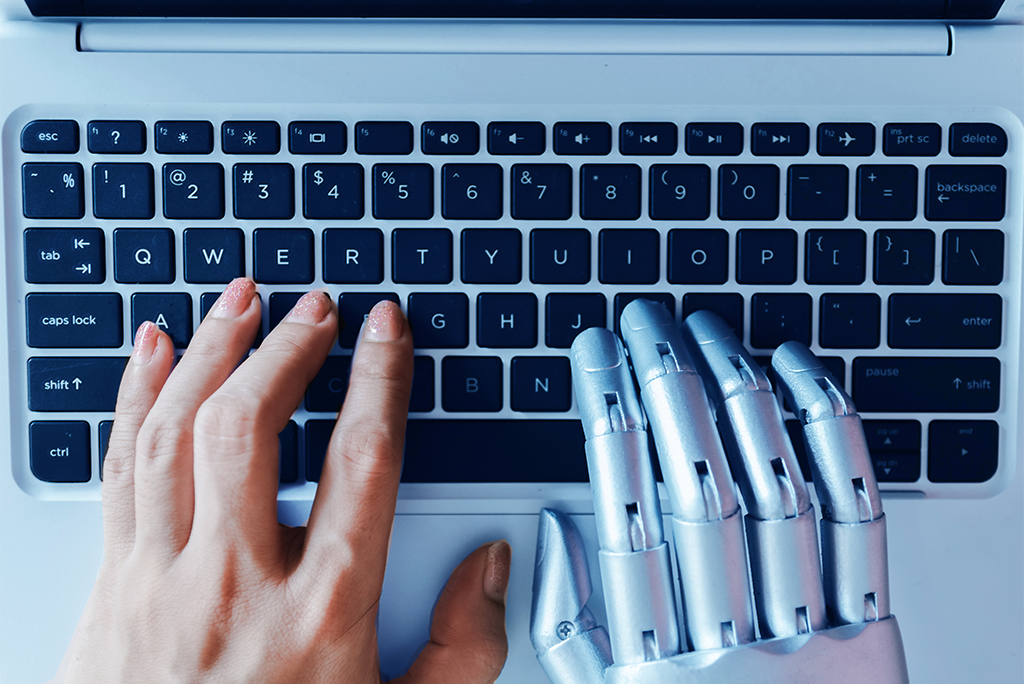Artificial Intelligence: Can Machines Think?
A blog post by Christopher Miller (H02)
Artificial Intelligence, also known simply as AI, is something that all of us are familiar with in one way or another. Whether it be using your iPhone to ask Siri about the weather, using Google Maps to get to work while it gives you information about traffic, or getting shows recommended to you on Netflix, artificial intelligence is prominent in all of our daily lives, and will only become more so as time goes on. Artificial Intelligence poses some interesting philosophical questions and considerations, especially as it is only becoming more and more of a staple in our daily lives and is getting even more and more technologically advanced and powerful. In order to address these questions though, we first need to know what exactly artificial intelligence is.
What is artificial intelligence? Artificial intelligence is the technology that gives computers the intelligence and capability to perform tasks that would normally require human input. In addition to the previous examples that I have already given as to how artificial intelligence plays an important role in our daily lives, I would like to give one more. Nearly everybody, everyday, uses Google's search engine, which is powered by artificial intelligence, to find immediate answers on a wide range of topics. Instead of having to go out of your way to seek knowledge on your subject by reading a book about it or asking someone knowledgeable about it, Google's search algorithm is tasked with providing you the information, almost instantly. When people think of artificial intelligence, they may usually think of robots or other human-like examples of artificial intelligence, but most examples of AI that we encounter in our daily lives are smaller-scale examples such as the ones I have already given, meant to perform specific tasks and not much else. There is a distinction to be made between these two types of artificial intelligence. "Strong" AI versus "weak" AI.
What are strong and weak AI? Weak artificial intelligence is artificial intelligence that is most prominent in our daily lives, with the previously given examples. Strong artificial intelligence though, is artificial intelligence that has been variously described as artificial intelligence that is on par or that surpasses human cognitive capabilities or artificial intelligence that is indistinguishable from human intelligence. It is this hypothetical "strong" artificial intelligence that has raised philosophical questions and fascinated us for decades. One of the first people to tackle this subject of strong AI was Alan Turing.
Alan Turing, who was a British mathematician, computer scientist, and philosopher, is known for many things, one of which being his role in cracking the Nazi enigma codes, which changed the course of World War II. Another thing that he is known for, and what I will be focusing on for the purpose of this blog post, is his proposal of the Turing Test. In his 1950 paper, Computing Machinery and Intelligence, Alan Turing asks the question "Can machines think?" In order to answer this question, he proposed a game called The Imitation Game. In that 1950 paper, he describes the Imitation Game as such,
"The new form of the problem can be described in terms of a game which we call the ‘imitation game’. It is played with three people, a man (A), a woman (B), and an interrogator (C) who may be of either sex. The interrogator stays in a room apart from the other two. The object of the game for the interrogator is to determine which of the other two is the man and which is the woman. He knows them by labels X and Y, and at the end of the game he says either ‘X is A and Y is B’ or ‘X is B and Y is A’.
He later adds:
We now ask the question, ‘What will happen when a machine takes the part of A in this game?’ Will the interrogator decide wrongly as often when the game is played like this as he does when the game is played between a man and a woman? These questions replace our original, ‘Can machines think?’


Since we still don't know what triggered "strong" natural intelligence in our human forebears, it would be premature to rule out the possibility of strong AI. But I heard a persuasive woman on the BBC this afternoon who was quite convinced that no conceivable machine intelligence would be capable of packing her kids off to school with a reassuring hug and credible emotional support. Well, we'll see.
ReplyDelete